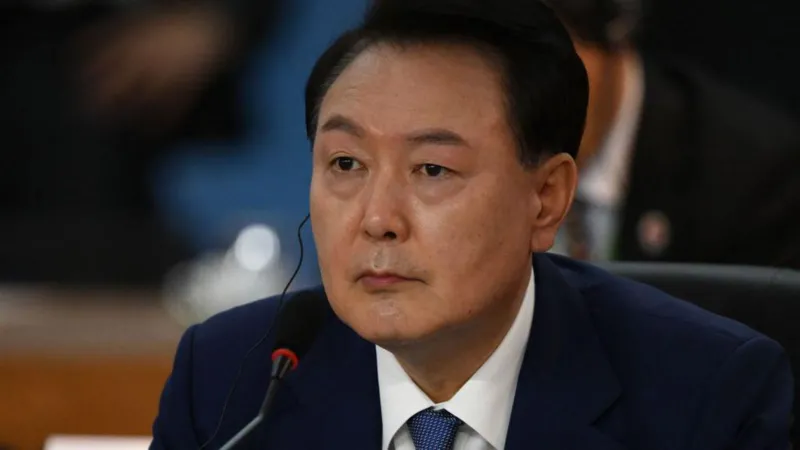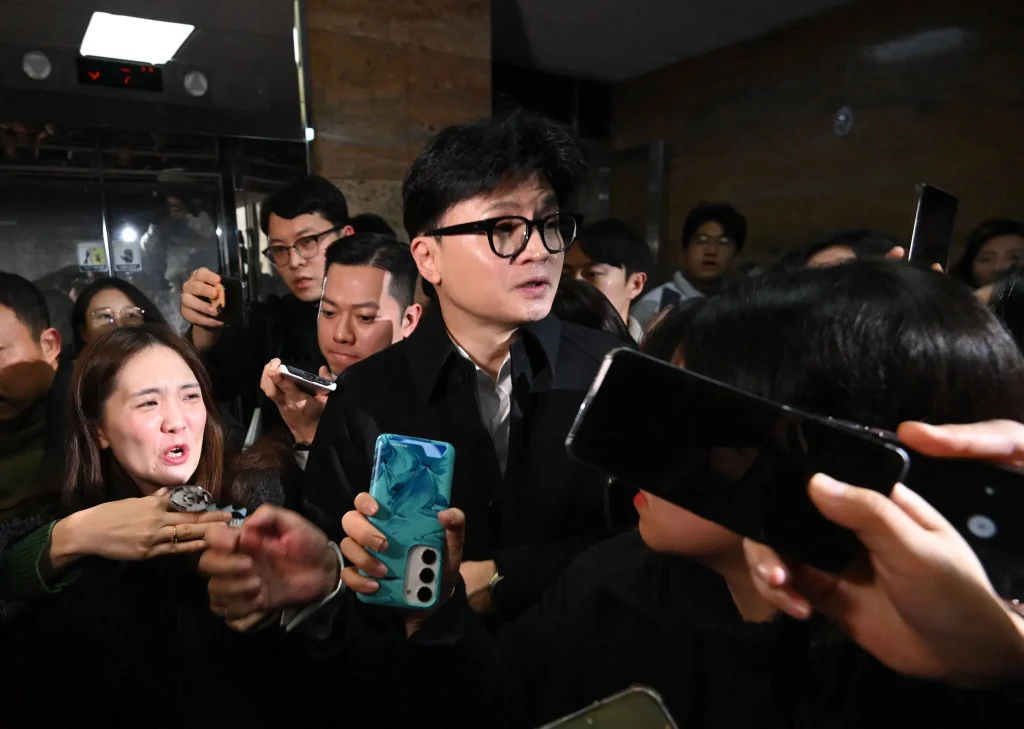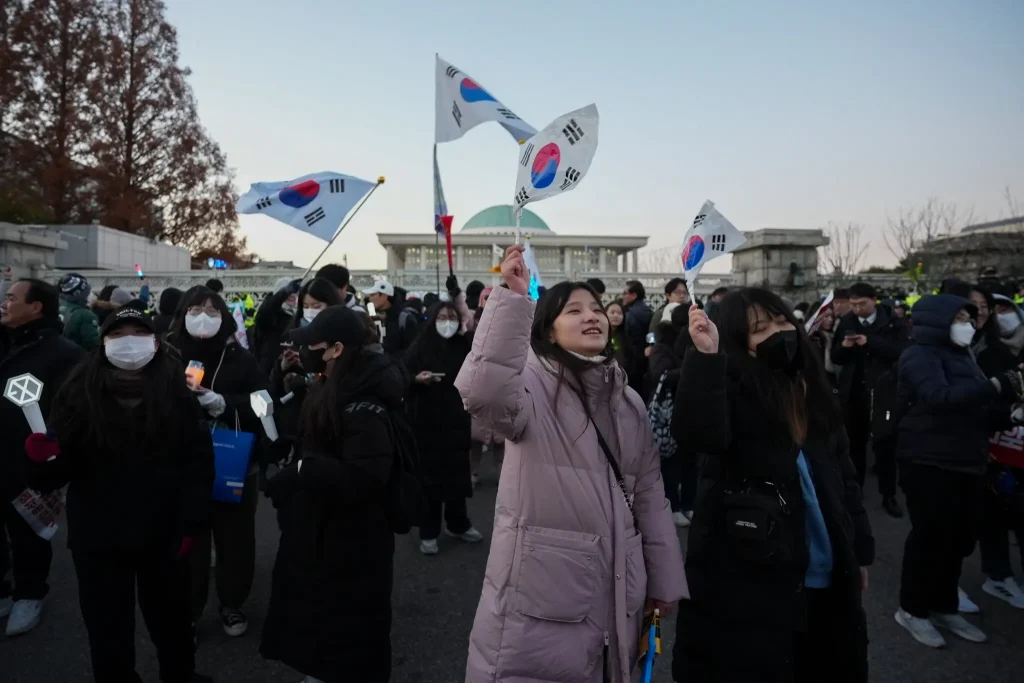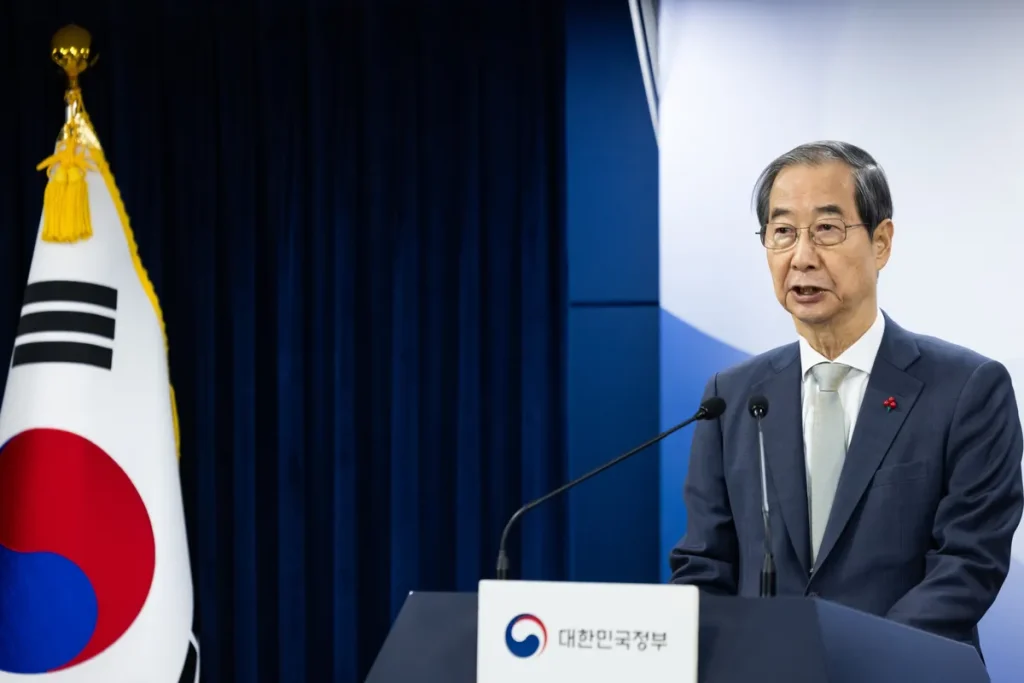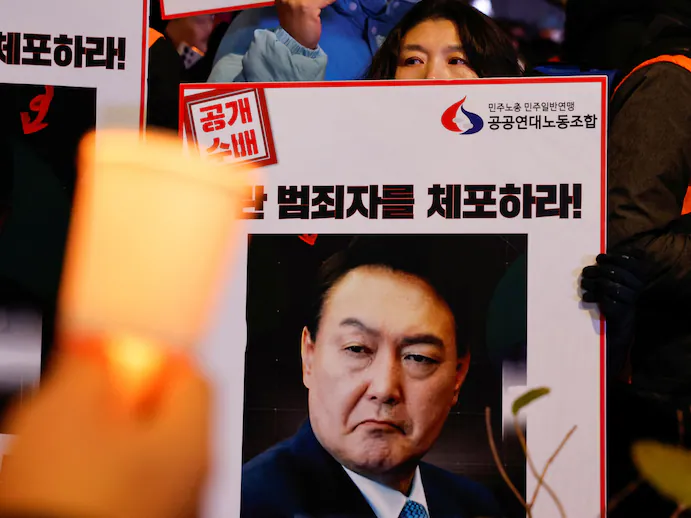Arrest warrant issued for impeached S Korea president Yoon
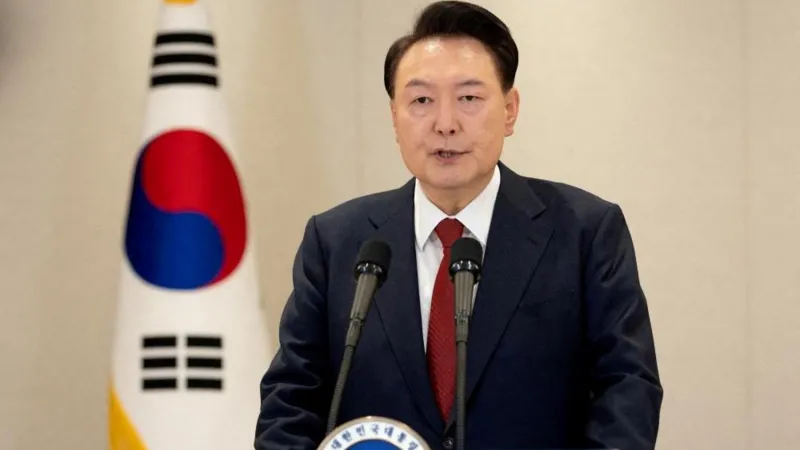
In a dramatic and unprecedented move, an arrest warrant has been issued for South Korea’s impeached president, Yoon Seok-yeol, sparking widespread political turmoil in the country. The decision comes amid mounting allegations of corruption, abuse of power, and political misconduct. This marks a critical turning point in Yoon’s presidency, which has been marred by deepening controversies and a volatile political landscape.
The Allegations Against Yoon
Yoon, who was impeached by the National Assembly in early December 2024, faces a series of allegations, most notably involving corruption and bribery during his time in office. Critics accuse him of engaging in illicit financial dealings with powerful corporate figures, including high-ranking officials in government ministries. The charges suggest that Yoon and several members of his inner circle may have accepted bribes in exchange for favorable business deals, government contracts, and political favors.
In addition to the bribery allegations, Yoon has been accused of using his presidential office to suppress political opponents and silence dissent. These claims have been particularly troubling for South Korea’s democracy, as critics argue that Yoon’s actions undermined the independence of key institutions, such as the judiciary and law enforcement. His involvement in what many see as politically motivated investigations against opposition leaders further exacerbated tensions between him and his political rivals.
The arrest warrant is believed to be linked to these charges, signaling that prosecutors are taking the allegations seriously and are determined to hold the president accountable. The warrant follows months of investigations by South Korean authorities, who have been gathering evidence and interviewing witnesses related to Yoon’s alleged misconduct.
The Impeachment Process
Yoon’s impeachment has set off a political firestorm in South Korea, with supporters and detractors of the president clashing in a highly charged political environment. The impeachment was formally triggered by the National Assembly, which cited Yoon’s involvement in the corruption scandal and other abuses of power as the primary reasons for seeking his removal. The vote to impeach Yoon was supported by a majority of lawmakers, though the move was opposed by his loyalists and members of his conservative party.
While the impeachment has led to Yoon’s removal from office, the issue remains divisive within the nation. Some view the impeachment as an essential step toward restoring integrity to South Korea’s political system, while others see it as a politically motivated attack aimed at removing a president who had become increasingly unpopular due to his controversial policies and leadership style.
The arrest warrant complicates an already tense political situation. It represents a major escalation in the ongoing legal and political battle surrounding Yoon’s presidency. While Yoon has denied all allegations, his critics argue that the charges against him are legitimate and deserving of legal action.
Yoon’s Response and Legal Defense
In response to the arrest warrant, Yoon has strongly denied any wrongdoing and vowed to fight the charges. His legal team has condemned the move as an act of political persecution and argued that the allegations against him are baseless. Yoon’s supporters have rallied around him, accusing political opponents of using the judicial system as a tool to destabilize his government.
The former president has also questioned the fairness of the investigation, suggesting that it is part of a broader effort to undermine his administration. He has claimed that the charges are politically motivated and aimed at discrediting his administration’s efforts to tackle corruption within South Korea’s government and corporate sectors. Yoon has reiterated that he is innocent of the accusations and is prepared to defend himself in court.
However, the public sentiment towards Yoon has been increasingly negative, with many citizens expressing frustration over the allegations and the ongoing political instability. Protests have erupted in major cities, with demonstrators calling for Yoon’s accountability and demanding that the justice system hold him to the same standards as any other public official. The protests have become a flashpoint for broader discontent with the political establishment, with many South Koreans questioning the country’s ability to address corruption effectively.
The Impact on South Korean Politics
The arrest warrant for Yoon is a significant moment in South Korean politics, signaling a deepening crisis that could have long-term repercussions for the country’s political landscape. The allegations against Yoon have polarized the nation, with different segments of society reacting differently based on their political affiliations.
For the conservative faction, Yoon’s impeachment and the subsequent arrest warrant represent a direct attack on their values and vision for the country. They view the legal action as an attempt to weaken their political influence and undermine the agenda they pushed during Yoon’s presidency. On the other hand, progressives and reformists see the arrest warrant as a necessary step toward ensuring accountability and restoring public trust in government institutions.
The unfolding situation could have significant implications for the upcoming elections, as political leaders from both sides of the ideological spectrum prepare to navigate the fallout from the ongoing scandal. It is expected that Yoon’s arrest and the political chaos surrounding it will dominate the national discourse, influencing public opinion and potentially altering the course of South Korea’s political future.
International Reaction
The international community has been closely watching the situation in South Korea, given the country’s role as a key player in global politics and economics. The arrest warrant and the political turmoil surrounding it have raised concerns among foreign governments and investors about the stability of South Korea’s political system. The potential for ongoing instability could have economic consequences, particularly in areas such as trade, business confidence, and foreign relations.
Countries with strong ties to South Korea, such as the United States, Japan, and China, have expressed concern about the political situation and have called for a peaceful and orderly resolution to the crisis. These nations have emphasized the importance of upholding the rule of law and ensuring that the investigation into Yoon’s alleged misconduct is fair and transparent.
The arrest warrant issued for impeached South Korean president Yoon Seok-yeol marks a dramatic escalation in the ongoing political crisis that has shaken the country. As South Korea grapples with the fallout from the corruption scandal and the political divisions it has stirred, the question of Yoon’s accountability will continue to dominate the national conversation. The legal proceedings and political responses to the arrest warrant will play a crucial role in shaping the future of South Korea’s political landscape and its relationship with the international community.


